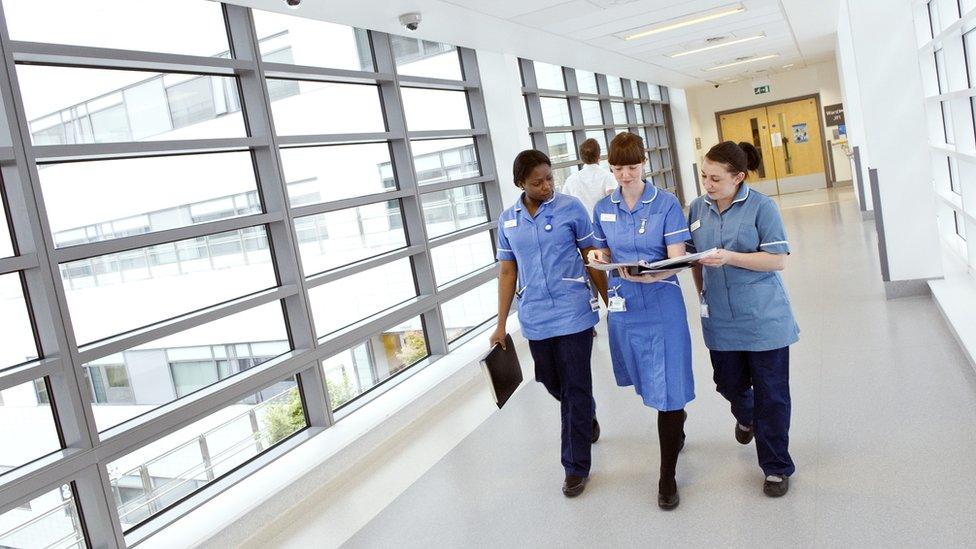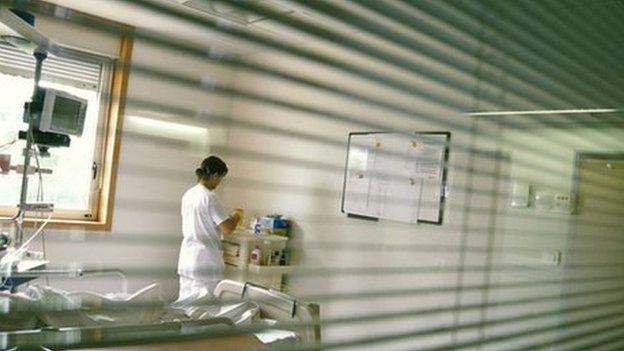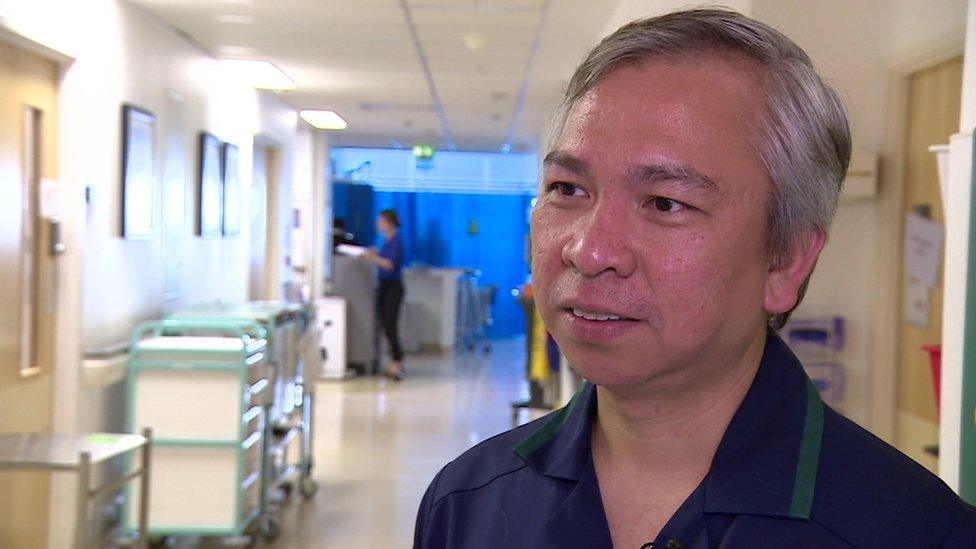Nurse shortage 'could last for years'
- Published

A shortage of nurses in the UK will continue for years to come and could get worse, experts are predicting.
The warnings follow a report from early 2016 on the nursing workforce compiled by the Institute for Employment Studies for the Migration Advisory Committee.
The authors cite the ageing workforce, poor planning by government and the risks from Brexit as key problems.
A Department of Health spokesman said that retaining home-grown nurses was a "top priority" for the government.
The report prompted the government to relax rules and grant up to 15,000 visas for nurses from outside the European single market over the next three years.
But its publication was put off during the EU referendum, so it is only now that the full scale of the problem is revealed.
The report highlighted evidence showing the NHS was already short of nurses - with one in 10 posts unfilled.
It said that as one in three nurses are over the age of 50, the NHS faces a retirement timebomb and warned the NHS will not have the nurses to plug the gaps.
It criticises workforce planning in the NHS, citing the 17% cut in nurse training places between 2009 and 2013. Since then the numbers have been increased but this has come too late, the report said.
It has meant the NHS has increasingly had to rely on recruiting nurses from abroad - over the past year more than a quarter of new recruits have come from overseas.
Foreign nurses now make up 13% of the workforce with a third of them coming from the EU - a source which the report authors believe could start to dry up in the coming years following the vote to leave.
Report author Rachel Marangozov believes nurses could be put off by the prospect of Brexit which, together with the other factors, means the recruitment of extra nurses from the rest of the world will "not be sufficient" to plug the gap in the workforce.
"The government needs to act now to ensure that the UK has a domestic supply of nurses to fill these future posts. This will require adequate and sustained investment in workforce planning," she said.
The warning comes after a report by the Public Accounts Committee earlier this year was also critical of nursing workforce planning.
There are around 360,000 nurses currently working in the NHS in England - with the Royal College of Nursing believing there is already a shortage of at least 20,000.
RCN general secretary Janet Davies said: "This report makes sobering reading and it is clear that without urgent action the UK is heading for a major nursing shortage.
"Thanks to years of short-term thinking, the UK is completely unprepared to deal with the challenges posed by an ageing workforce, increasing demand and now the uncertainty caused by leaving the EU."
Ms Davies also warned that the plan to scrap nurse bursaries and make them pay for university courses - unlike other students they do not currently face fees to study - could make the situation even worse.
But a spokesman for Department of Health in England pointed out there were 11,000 more nurses on our wards than there were in 2010 and training numbers were increasing.
"As the Health Secretary has already said, EU workers are a crucial part of our NHS and the training and retention of home-grown nurses is a top priority for this government."
- Published10 May 2016

- Published15 October 2015

- Published10 September 2015

- Published11 March 2014

- Published14 January 2016
